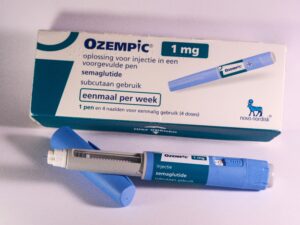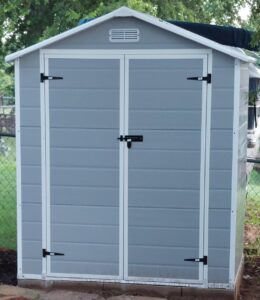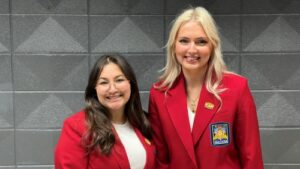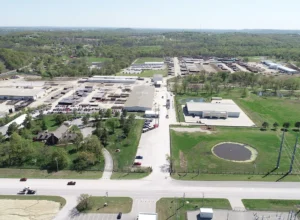Nine months ago, the Cura medical clinic was just a conversation that a group of doctors who had attended medical school together had about the need for a free clinic to serve uninsured and poverty-stricken patients.
On Tuesday, less than a year later, that conversation has become a reality as the new Cura Medical Clinic, located at 1012 W. Taft, had their official ribbon cutting and opened their doors to their first patients this evening.
Because the clinic is run by volunteers, they limit their hours of availability from 6 to 8 pm. By 7 pm on their first day, they’d already met half their quota of 16 patients for the night, and nearly every seat in the small waiting room was taken.
Doctor Rachel Ray (not that Rachel Ray) says that the reason for the limited hours and patients is to keep things operating smoothly and get patients seen efficiently, while at the same time not overwhelming the volunteers that are donating their time.
“Everyone here has already worked a full day, so the last thing we want to do is stress them out even more when they’re volunteering their time with us,” she says.
“We had four people wait for an hour and a half outside before we opened our doors,” she said. “Thankfully, it was a nice day and not too hot.”
The clinic operates on a strict first-come, first-served basis, where patients are given a number and a booklet that will serve as a roadmap to health and wellness, where all medications, allergies, treatments, blood pressures, etc will be included.
Cura cannot see anyone with any sort of healthcare coverage at all, including insurance or “health sharing” insurance alternatives.
“The agreements we have with the partners who provide our funding prevents us from being able to see a patient that has any sort of other coverage,” Ray said.
Cura has two exam rooms as well as a lab and a “triage” room that can get some basic information out of the way before you see a physician. According to Dr. Ray, they can treat acute and chronic illnesses, such as high blood pressure, but not the more serious things like broken bones or deep lacerations.
“We just don’t have the equipment for those types of things, yet.” Ray said, then added, “Hopefully, we will at some point, but for now we just have to refer those patients to an ER.”
On their website, Cura recognizes the reality of being a medical clinic that can’t help everyone all the time, stating “we may not get everything addressed during your first visit, but we will start with the most crucial items and will pave a path for your health goals. Health and Wellness is a process, and we are honored to help meet those needs and assist in the journey.”
CURA for the world’s clinics are opioid-free facilities, and no narcotics are kept or dispensed on the premises.
Cura’s website states that there are roughly 41 million uninsured people in the United States. This includes folks that are working, but still not able to afford insurance. It’s these types of patients that Cura’s US clinics were created to reach. Dr. Ray calls these patients “the ones who fall through the cracks.”
Cura was started when Dr. Jawad Trad (known as TJ) led a medical mission to Haiti just a few days after graduating from Oklahoma State University and found his passion in humanitarianism when treating refugees at the Lebanese-Syrian border.
Cura was founded in 2016 to not only help with medical aid but assist in providing food and water security. They have so far opened clinics in Haiti, Uganda, Peru, the Democratic Republic of Congo, Tanzania and most recently, in Burundi.
It was in 2018 when Doctors Zach Fowler, Rachel Ray, and Sam Elzay met with Trad to discuss opening their first clinic in the United States. They began to ask for help and people stepped in to donate equipment and services. The space for the clinic came from Elle Jewell, the woman who owns the strip center that also houses Cato Fashions and The Shoe Department, just across the parking lot from Walmart.
Fowler says the process of implementing these clinics in the U.S. is just beginning. “We hope to have one of these clinics in every state,” Fowler says. “This clinic in Sapulpa, Oklahoma is the first of those.”










